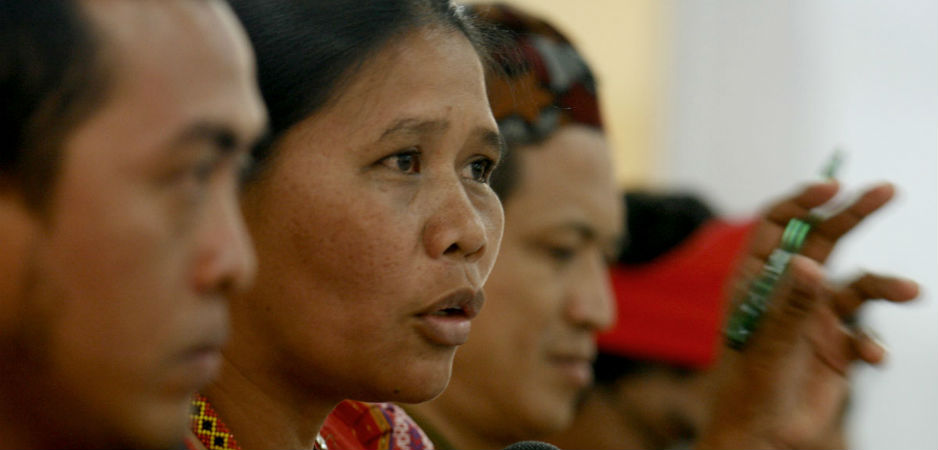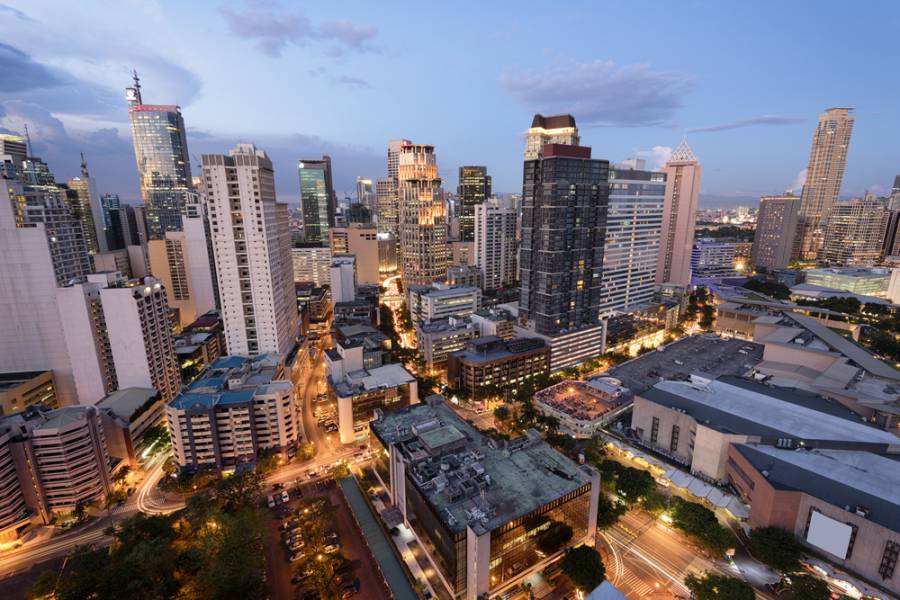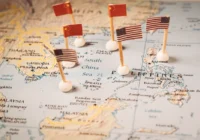A tribunal this year uncovered grave violations against the human, economic and cultural rights of Filipinos by America and their own leaders.
The Filipino people are under attack. The Lumad, an indigenous group in the southern Philippines, are being forced to leave their ancestral lands and the source of their livelihood to make way for mining operations and land conversion. Resistance is deadly.
In August alone, there were two massacres that left nine people dead. On August 30, the army and paramilitary forces occupied the Alternative Learning Center for Agriculture and Livelihood Development, an award-winning school for indigenous youth. The director of the school, Emerito Samarca, was taken by force and was found dead in a classroom the next day. He had an ear-to-ear slit across his throat and gunshot wounds in his chest.
The same day Samarca’s body was found, Dionel Campos—the chairman of a Lumad organization campaigning against mining—and his cousin, Datu Juvillo Sinzo, were executed in front of hundreds of residents in Lianga. Sinzo, who was separated from the crowd, was tortured by paramilitaries. They smashed his arms and legs with a wooden stick before shooting him.
Karapatan, a Filipino human rights organization, has raised the issue of the Lumad peoples at the United Nations Human Rights Council. But given the culture of impunity in the Philippines, often exacerbated by implicit support from the US government, activists are pursuing other means to hold the perpetrators of crimes like these to account.
To help give voice to the victims of human rights violations, for three intense days this summer, the authors of this article participated in the International People’s Tribunal on Crimes Against the Filipino People. The tribunal was convened in Washington by human rights defenders, peace and justice advocates, lawyers, jurists, academics, people of faith and political activists. It was held at the behest of victims of human rights violations to shine a spotlight on official crimes and hold the responsible governments accountable.
Evidence supporting the allegations of rights abuses, including testimony from over 30 lay and expert witnesses, was provided to an international panel of prosecutors led by former US Attorney General Ramsey Clark and considered by an international group of jurors from a range of disciplines. The tribunal found the Aquino regime responsible for systematic violations of the civil, political, economic, social and cultural rights of the Filipino people. The conveners also held the US government responsible, on account of its military intervention, economic and environmental exploitation, and imposition of neoliberal globalization on the Philippines.
Here’s what the authors learned.
Violations of Civil and Political Rights
The first group of charges focused on gross violations of civil and political rights, including extrajudicial killings, disappearances, massacres, torture and arbitrary arrests and detention, as well as other brutal and systematic attacks on the basic democratic rights of the Filipino people.
A key driver of the most egregious abuses has been the US-inspired counterinsurgency program, Oplan Bayanihan. Launched in 2011 by Philippine President Benigno Aquino III, it’s supposedly a program to fight communist guerillas, but in practice doesn’t distinguish between civilians and combatants. The reality is that Oplan Bayanihan is used to target any individuals or groups the government classifies as a threat to its agenda.
Amaryllis Hilao Enriquez, a former Marcos-era political prisoner, described Oplan Bayanihan as a “repackaging” of the US-led “War on Terror” for the Philippines. The operation was devised with the help of the US government, which provides technical assistance, military aid and, occasionally, actual US military personnel.
Following Enriquez’s testimony, the jurors heard personal accounts of gross human rights violations.
Maria Aurora Santiago, for example, recounted the death of her partner, Wilhemus Geertman—a Dutch lay missionary who was targeted by the Philippine military due to his involvement in peasant organizing and advocacy. He was the executive director of Alay Bayan-Luson, a grassroots organization involved in disaster preparedness, mitigation and victim assistance, especially to poor communities. Geertman was also involved in numerous environmental campaigns against mining, logging and dam projects. Accused of belonging to the New People’s Army—the armed wing of the Communist Party of the Philippines—he was shot dead in his office by military and police assets.
Attorney Maria Catherine Salucon, a founding member of the National Union of People’s Lawyers, then opened the jurors’ eyes to the fact that even lawyers working on human rights cases are subjected to open harassment and intimidation. Like Geertman, Salucon—who represents clients in cases involving violations of human rights and political prisoners—has been subjected to red tagging and vilified as a member of Communist Party.
One day, Salucon and her paralegal, William Bugatti, had lunch with relatives of their detained political prisoner clients. During the meal, Bugatti told Salucon that he was taking precautionary security measures and advised her to do the same. Later that night, he was gunned down by government security forces.
After learning of Bugatti’s death, Salucon was told by a client—a civilian asset for the Philippine National Police (PNP)—that the PNP was investigating her to “confirm” that she was a “red lawyer.” Salucon also learned she was being secretly followed by military intelligence officers. Salucon took the matter to the courts and was granted a protective order that allowed her access to military records pertaining to her, but the military continues to deny conducting any surveillance activities against her at all.
Melissa Roxas, a Filipina-American activist, then testified concerning her May 2009 abduction and torture at the hands of Philippine military. She was captured while conducting health surveys organized by a social justice alliance.
Roxas, who has also conducted fact-finding missions into rights abuses, and two Filipino volunteers—John Edward Jamdoc and Juanito Carabeo—were abducted by approximately 15 men armed with high-powered rifles, some of them wearing ski masks or bonnets. They were handcuffed and blindfolded and forced into a van.
Roxas was held for six days at a military camp, most of which she spent in handcuffs and blindfolded, and accused of belonging to the New People’s Army. She was subjected to food deprivation, forced into stress positions, beaten, choked, suffocated with plastic bags and repeatedly smashed headfirst against a wall. She was lectured on the evils of communism by torturers who threatened her with death and tried to force her to sign documents confessing that she was a militant. Despite her ability to describe some of her abductors and torturers in court, no one has been arrested or charged for her abduction and torture.
Violations of Economic, Social, and Cultural Rights
The second group of charges concerned an array of abuses against Filipinos’ economic, social and cultural rights—especially through the imposition of neoliberal economic policies, various attacks on the livelihoods of ordinary people, the transgression of their economic sovereignty and the destruction of the environment.
The scope of these violations was put into perspective by economist Jose Enrique Africa, who presented an overview on the general socioeconomic situation of the Philippines. Notably, he pointed out, around two-thirds of Filipinos—some 66 million people—are poor, living on just $2.80 or less per day. However, the wealth of the ten richest Filipinos has more than tripled under the Aquino administration.
While ordinary Filipinos struggle to make ends meet, foreign investors favored by the government are making out like bandits. Foreign investment makes up 40% of approved investment in the Philippines over the last decade and a half, he said—not even counting dummy corporations that would increase those numbers. According to Africa, the equivalent of some 98% of domestic production is exported for the benefit of foreign firms and economies. Trade and investment liberalization have made the Philippines one of Asia’s most open economies while destroying its national wellbeing.
Mining companies, in particular, boosted their profits some 115% between 2010 and 2014. Yet the Philippines doesn’t benefit from its mineral resources. In the last five years, dozens of communities and thousands of families have been temporarily or permanently displaced—often violently—to give way to mining projects, especially in Mindanao.
Despite the Philippines’ rich natural resources and large, productive labor force, the country has become a service and trading economy more than a producing economy. The manufacturing sector, at a little under a quarter of gross domestic product, has contracted to as small a share of the economy as it was six decades ago. And agriculture, at 10% of gross domestic product (GDP), is the smallest it’s been in history. The result has been widespread joblessness and poverty.
Africa noted that the US is the biggest foreign investor in the Philippines, and American corporations often dominate local firms.
Unsurprisingly then, US corporations are among the biggest direct beneficiaries of the neoliberal economic policies favored by Washington. For example, the Philippine government has hailed the creation of 1 million jobs in the business process outsourcing (BPO) sector, especially call centers. However, BPOs are dominated by foreign investors, with US companies alone providing up to 31% of foreign equity.
Another example lies in the country’s drive toward privatization, which is likewise supported by the US. Power privatization has made Philippine electricity the most expensive in Asia, even more so than in Japan or South Korea. Water privatization has made its water the third most expensive after Japan and Singapore. According to Africa, US firms account for 45% of the Philippine electric power system’s imports and 10% of its water equipment and services imports.
Among the US government’s more egregious interventions, Africa testified, is the Arangkada Philippines Project, or TAPP. Funded with $1 million from the United States Agency for International Development (USAID) since 2010, the project has lobbied Philippine policymakers on hundreds of regulatory issues. Administered by the American Chamber of Commerce and the Joint Foreign Chambers of Commerce in the Philippines, TAPP is among the most aggressive entities seeking to change the 1987 Philippine Constitution and remove the last legal impediments to foreign capitalism in the country. Meanwhile, there are at least five other USAID economic policy intervention projects cumulatively worth $74 million.
Following Jose Enrique Africa, multiple witness took the stand to describe how these investment policies have negatively affected the Filipino people—particularly in agriculture and agrarian reform (or lack thereof), the situation of the urban poor, the displacement of indigenous peoples, attacks on unions and labor rights, human trafficking, illegal rate hikes for mass transportation, the privatization of health care and other violations of economic, social and cultural rights.
Rafael Mariano testified about an incident concerning Hacienda Luisita, a landholding of more than 6,000 hectares owned by the family of President Aquino (and the site of violent labor repression in the recent past). Under land reforms passed in the late 1980s, Hacienda Luisita should have been subject to redistribution to poorer farmers. Yet the Aquino family and its allies devised a stock scheme to circumvent the reforms. Small farmers took the case to the Philippine Supreme Court, which ordered the redistribution of vast tracts of the land. Yet the Philippine government’s Department of Agrarian Reform—an agency under Aquino’s direct control and supervision—refused to comply. Instead, it harassed the farmers and destroyed their crops and huts. To date, no actual distribution has been made.
Marieta Corpuz testified about instances of land grabbing, where peasants and indigenous peoples are being dispossessed of their ancestral domains to make way for foreign investment projects. For example, the Aurora Pacific Economic Zone Freeport (APECO) project—which was supposed to transform a town in Aurora province into a commercial and industrial district and eco-tourism zone—is resulting in massive dislocations of indigenous Dumagat and Agta tribes on behalf of big businesses linked to a Philippine senator and his family. Corpuz testified that fisherfolk, farmers and indigenous activists who have opposed the project have been subjected to threats, harassment and extrajudicial killings.
Violations of National Self-Determination and Liberation
A final group of charges concerned violations of the rights of the people to national self-determination. This includes crimes against humanity against national liberation movements and dissidents, who are often falsely characterized as “terrorists.”
Professor Marjorie Cohn of Thomas Jefferson Law School noted that the War of Terror—though imposed in the Philippines as early as 2002 under the Gloria Arroyo regime—was officially codified in Manila with the passage of the Human Security Act of 2007, which can be thought of as the Philippine version of the US Patriot Act. The law, which contains an overly broad definition of “terrorism” and harsh mandatory penalties, including 40 years imprisonment without parole for even minor offenses that could be construed as “terrorism,” can be used to hold dissidents indefinitely. And it allows the government to engage in all manners of spurious prosecutions, according to Human Rights Watch.
The Obama administration, Cohn added, enlisted the Aquino government last year to negotiate the Enhanced Defense Cooperation Agreement—a military basing agreement that could reintroduce US troops to some of the same Philippine military facilities they were expelled from back in the 1990s. It has officially roped the country into the US “pivot to Asia,” an effort by the Obama administration to encircle China through alliances with its neighbors.
“Although it gives lip service to the Philippines maintaining sovereignty over the military bases,” Cohn explained, “it actually grants tremendous powers to the U.S.” She added, “The U.S. also seeks to return to its two former military bases in Subic and Clark, which they left in 1992. These bases were critical to the U.S. imperial war in Vietnam. This violates the well-established right to of peoples to self-determination.”
Dante C. Simbulan, a former college dean at the Polytechnic University of the Philippines, convincingly argued that the adoption of US counterinsurgency techniques by the Philippine government had produced an array of grievous rights violations.
The Armed Forces of the Philippines and the Philippine National Police, for example, receive their training in counter-insurgency from the Americans. Various counterinsurgency operations, from Oplan Lambat Bitag and Oplan Bantay Laya under Arroyo to Oplan Bayanihan under Aquino, were patterned after American counterinsurgency guides. Oplan Bayanihan, Simbulan testified, is “presented in the guise of peace and development. In reality, it is an operational guide to crush any resistance from those who work for social justice and support the poor and the oppressed.”
Verdict
After extensive deliberations, the jury reached a verdict of guilty on all three counts.
The tribunal called on the defendants to stop the commission of illegal and criminal acts, to repair the damages done to the Filipino people and their environment, compensate victims and their families for atrocities and rehabilitate communities, especially indigenous communities, who have been gravely affected by the acts of the defendants.
Considering the serious violations of international law by the defendants, the tribunal also called for violations to be brought before international bodies, including the International Criminal Court, as well as the Inter-American, European, African and Asian regional courts in order to expose the defendants and stop their impunity.
It is time to hold the perpetrators of serious human rights violations against the Filipino people accountable.
*[This article was originally published by FPIF.]
The views expressed in this article are the author’s own and do not necessarily reflect Fair Observer’s editorial policy.
Photo Credit: Keith Kristoffer Bacongco / Bro. Jeffrey Pioquinto / R. Nagy / Shutterstock.com
 We bring you perspectives from around the world. Help us to inform and educate. Your donation is tax-deductible. Join over 400 people to become a donor or you could choose to be a sponsor.
We bring you perspectives from around the world. Help us to inform and educate. Your donation is tax-deductible. Join over 400 people to become a donor or you could choose to be a sponsor.
Support Fair Observer
We rely on your support for our independence, diversity and quality.
For more than 10 years, Fair Observer has been free, fair and independent. No billionaire owns us, no advertisers control us. We are a reader-supported nonprofit. Unlike many other publications, we keep our content free for readers regardless of where they live or whether they can afford to pay. We have no paywalls and no ads.
In the post-truth era of fake news, echo chambers and filter bubbles, we publish a plurality of perspectives from around the world. Anyone can publish with us, but everyone goes through a rigorous editorial process. So, you get fact-checked, well-reasoned content instead of noise.
We publish 2,500+ voices from 90+ countries. We also conduct education and training programs
on subjects ranging from digital media and journalism to writing and critical thinking. This
doesn’t come cheap. Servers, editors, trainers and web developers cost
money.
Please consider supporting us on a regular basis as a recurring donor or a
sustaining member.
Will you support FO’s journalism?
We rely on your support for our independence, diversity and quality.








